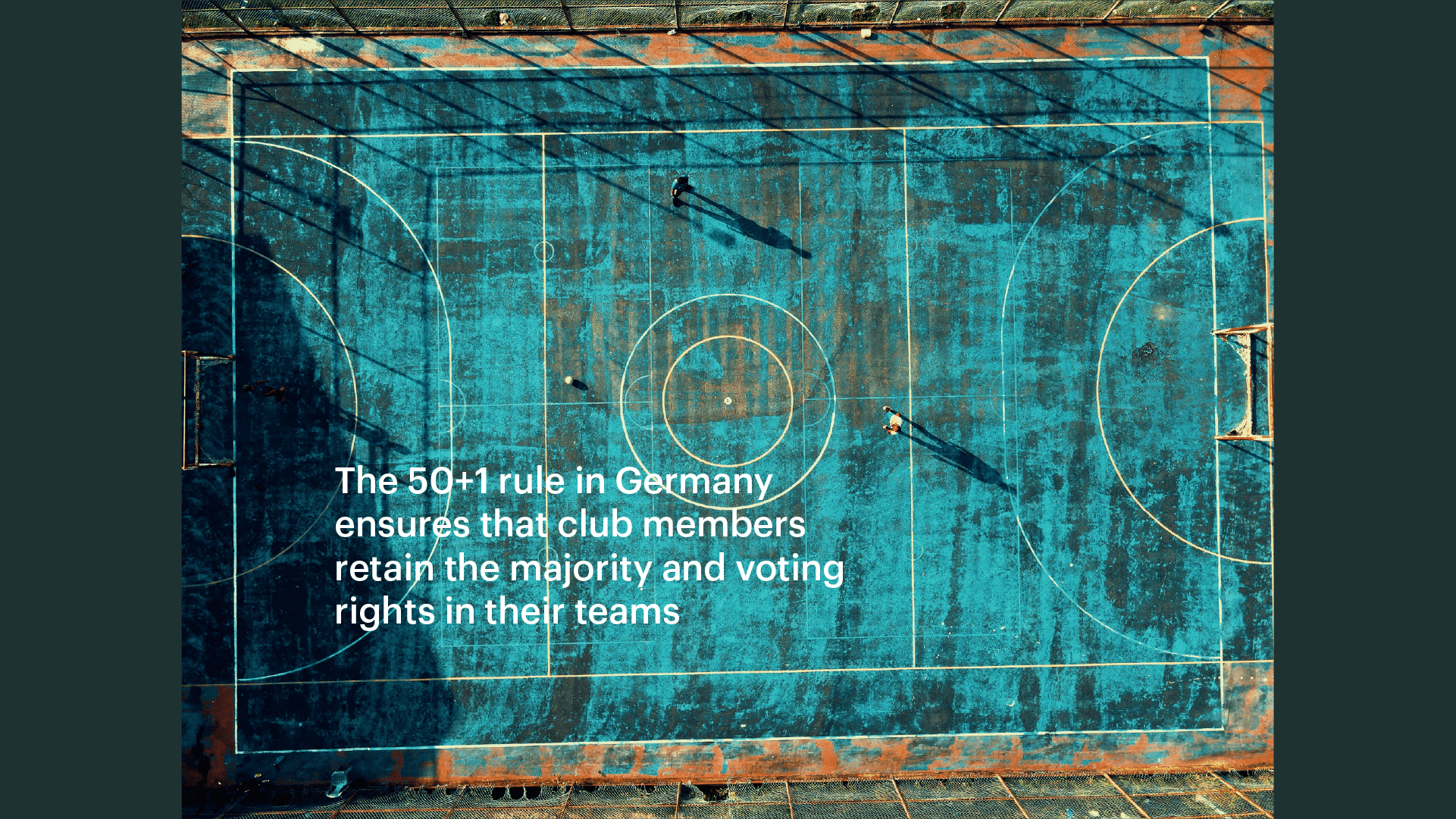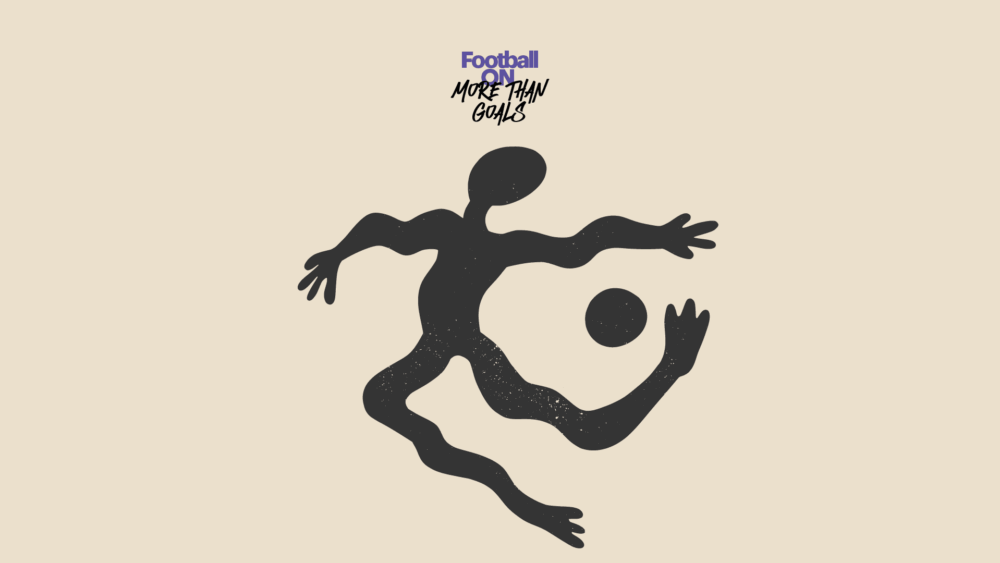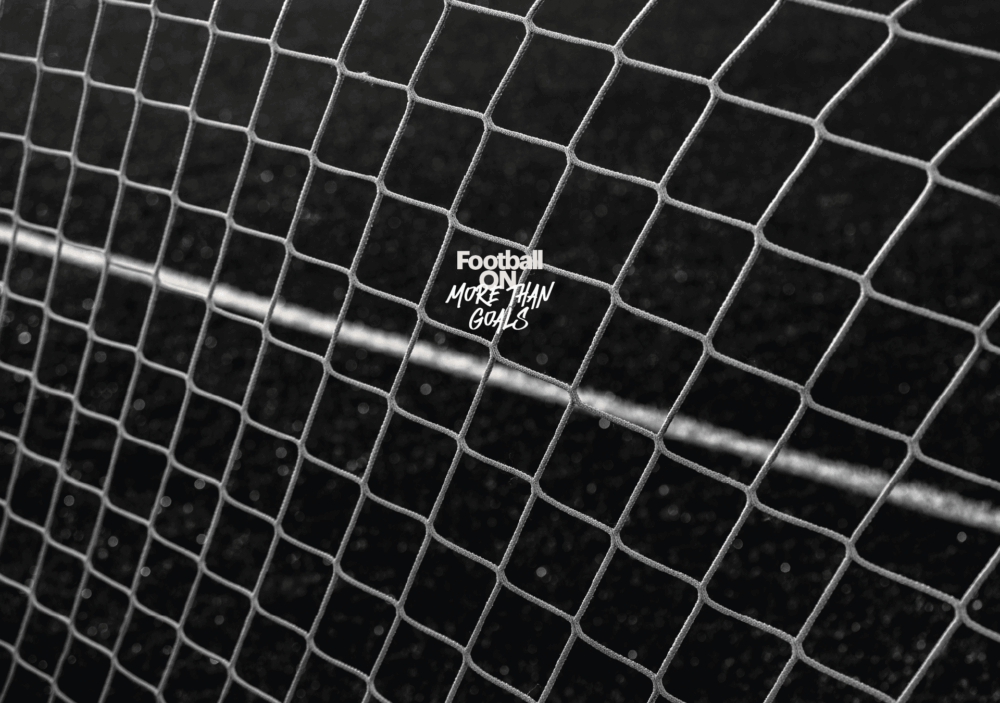
Gerasimos Symeonidis: “The 50+1 rule in Germany ensures that club members retain the majority and voting rights in their teams”
Gerasimos Symeonidis is a Sports Marketing/Management Professional and a lecturer at educational institutions in Greece and abroad. He participates in the ETERON project FootballON: More Than Goals, talking about the commercialization of football, the operation and development of football corporations and analyzing in detail the 50+1 model that dominates professional football in Germany.
How do you assess the increasing commercialization of football and how does it affect the competitive balance between teams?
To get a little idea of the size of football finances, it is useful to look back at the Deloitte study (here), which contains many interesting data for the 2022-2023 season, the year that is the subject of the study. The total football market increased to 35.3 billion euros, the five “big leagues” (England, Spain, Italy, Germany, France) continued to lead proportionally, contributing 19.6 billion. euros, i.e. 56% of the market, while the overall growth of European football reached 16% as a result of the 2022 World Cup.
Football, in purely microeconomic terms, is a monopoly version of the product offered. A buyer of a consumer product, e.g. a car, has several choices that vary depending on the needs, the purchase amount, and the personal taste of each one, in contrast to a football match between Real Madrid and Bayern Munich, which can only be held under the auspices of UEFA. On an even larger scale, the same happens with the World Cup, where a match between England and Argentina, for example, only takes place with the “blessings” of FIFA.
What is happening with the European Super League and what ethical dilemmas arise from the increasing trend of commercialization of football?
European football has turned into a perpetual battle of millions, into a “lion’s den” where only the strong can survive. The constant commercialization with the need for teams to seek even more revenue in order to remain at the top was reflected in the request of the powerful clubs to secede from UEFA and in the creation of the European Super League, a closed league, that is, on the model of the Euroleague. This specific project is essentially contrary to the structure and organization of European football, which is based on rewarding clubs based on their competitive situation while maintaining the model of promotion and relegation. UEFA responded with the new format in the competitions that practically means more matches, more revenue in connection with the fact that indifferent matches are now counted on the fingers of one hand.
As for the ethical dilemma, this concerns whether sporting success is achieved within the four lines of the pitch, through the development of football talent from scratch (grassroots development), or is it achieved at all costs with the investments of club owners, who seek even more revenue due to the nature that European football has taken on.
What forms of sponsorship are developing in football?
The landscape of sponsorship investments is quite clear with betting companies occupying the largest share in terms of their promotion, followed by energy, telecommunications and automotive companies. More specifically, in the Greek Superleague, 11 out of 14 teams display betting companies on their jerseys, while the organizing authority also has a betting company as its central sponsor, with the revenue from the central sponsorship being shared among the member teams of the cooperative. It is obvious that betting companies are the financial “blood donors” of football clubs not only in Greece, but also abroad. In several European countries, of course, the promotion of betting on jerseys has been banned, while the same happens in countries with a strong Muslim element.
On a technical level, the sponsorship messages to which a viewer or fan is exposed take various forms. They concern display positions belonging to the rights holder (e.g. in football clubs via jerseys, LED, cam carpet, etc.), display positions belonging to the organizing authority (e.g. backdrops, match forms, corners, etc.), positions of advertisers in LED and pop-up television inserts before the match, at half-time and at the end of the match.
What is happening in the field of Corporate Social Responsibility (CSR)?
Betting companies obviously understand their responsibility towards society and, together with the teams, proceed with various awareness-raising actions for the social groups they address. These actions concern the fight against racist phenomena, breast cancer prevention, actions to combat childhood obesity, childhood cancer, the smooth monitoring of matches by people on the autism spectrum, expenses for the renovation of oncology hospitals and many other initiatives.
Approaching the concept of sponsorship with purely capitalist and free market terms, the teams are commercial products that aim to attract sponsors with a higher price in order to maintain their financial viability. The benefits they offer to sponsors extend to a wide range of e.g. on site promotion, digital promotion, corporate actions and hospitality, providing privileges to fans with a season ticket. Football sponsorship has the privilege of targeting a very broad audience, stratified across all social classes, extending from season ticket holders in suites to the ordinary working-class fan who can’t wait to come to the stadium on the weekend.
What is the typical decision-making structure of a modern football club and the main factors that influence decisions?
In Greece, the dominant governance model is essentially that of the major shareholder as the central decision-maker. At this point, it would be useful to emphasize that many times the major shareholder is called by fans, the media, etc. as the “president”, while typically the chairman of the board of directors (BoD) and legal representative is institutionally another person. An executive role with representation on the Superleague Board of Directors is usually held by the first vice-president of a football club who is also the CEO of the football club (we also find him as the “general manager”). The members of the BoD of a club are usually appointed by the management, with the amateur having representation according to the statute, while no Greek club is listed on the stock exchange so as to be accountable to shareholders.
A specific organizational chart with distinct responsibilities as to the roles in Greek teams is found exclusively in large clubs. A relatively modern football club in Greece has the following positions as relatively distinct in terms of the responsibilities and duties of its executives:
-General Manager
-Football Department Manager
-Technical Director
-Communications Director
-Accounting – Financial Service
-Commercial Director
-Marketing Manager
-Ticket Manager
-Press Office Manager
-Legal Service
-Security Manager
-Training Center and Facilities Manager
-Head of Clothing & Caretakers
-Games-Stadium-Pitch Manager
Of course, the above are indicative and do not include the part of managing a football club’s academies. Other roles that we find exclusively in large clubs are:
-Head of Digital Media
-Director of Corporate Communication and Corporate Social Responsibility
-Head of International Relations who is also the liaison with UEFA, ECA etc.
As we go down, with the needs and demands in terms of club size and dynamics decreasing, many of the above roles are a luxury.
Tell us about the 50+1 model in German football, as we know you have studied it extensively. What are its advantages and disadvantages, especially compared to the Premier League?
In the 19th century, the emerging German middle class began to form clubs to organize its transition to a more urban environment: reading clubs, sailing clubs, gym clubs, riding clubs and, eventually, football clubs were created. The clubs were democratic associations that were registered, making them officially registered clubs – or “eingetragene Vereine” (abbreviated “e. V.”), which still appears in the full titles of most German football clubs today.
German clubs remained non-profit organizations controlled by their voting members until 1998, when the German football association (Deutsche Fußball Liga or DFL) changed its regulations to allow clubs to transfer their financial activities – as a consequence of the transition to professional football and an industry that goes beyond the narrow confines of the sport – to limited liability companies. This opened the way for private investment, on the condition that the original, parent club, the “e.V.” (the equivalent amateur for Greek standards), would retain 50% of the shares plus one voting share in the company. The “50+1” rule therefore ensures that a club’s members, i.e. the fans, continue to retain the majority and the right to vote, which is a brake on external entities (e.g. funds) acquiring a majority stake, as is the case with most English football clubs and the continuous influx of money from Qatar, Russia and elsewhere.
Bayern Munich, for example, may have sold 8.33% of its shares in Audi, Allianz and Adidas to “Bayern Munich AG”, but the remaining 75% belongs to “Bayern Munich e. V.” and its members. Borussia Dortmund uses a slightly different model, with “Borussia Dortmund GmbH & Co. KGaA” (a public limited company) listed on the stock exchange, “Borussia Dortmund e. V.” has a stake of only 5.53%, but retains the majority of voting rights.
These measures were introduced to limit short-term investors seeking quick profits. Only five Bundesliga clubs remain 100% e. V.: Schalke, Mainz, Fortuna Düsseldorf, Freiburg and Union Berlin. The 50 +1 rule is one of the strongest foundations that have strengthened German football and established it in society.
Are there any exceptions to the rule?
If an investor can prove that he has substantially and consistently supported football within the parent club for more than 20 years, he is entitled to request an exemption from the 50 +1 rule in order to be able to take full control of a club.
The first exemptions were granted to Bayer Leverkusen (in 1999) and Wolfsburg (in 2001), two teams that had been supported by pharmaceutical giant Bayer and car manufacturer Volkswagen since 1904 and 1945 respectively. The aforementioned business giants are inextricably linked to their respective cities, as they are essentially the driving force of the local economy.
In 2015, a third exemption was granted to Dietmar Hopp, founder and owner of software company SAP, which supported and promoted former team TSG 1899 Hoffenheim, which rose from the local leagues to the Bundesliga between 1990 and 2008. Although the exemption is perfectly legal under the 50+1 rule, Hopp and Hoffenheim are not particularly popular among the other teams’ organized fans.
The RB Leipzig football team is a separate company, RasenBallsport Leipzig GmbH. This subsidiary is 99% owned by Red Bull and only 1% by RasenBallsport Leipzig e.V., but the “e.V.” holds 100% of the voting rights. However, the amateur has only 17 voting members, who are either employed by or closely associated with Red Bull. The average RB Leipzig fan cannot become a voting member, and in this way Red Bull and RB Leipzig managed to bypass the 50+1 rule, which also makes RB Leipzig one of the most disliked teams in Germany.
What are the challenges facing the 50+1 model? And could it also be implemented in Greece?
Former Bayern Munich president Uli Hoeness is not alone in believing that clubs should be able to decide for themselves once opportunities for external investment arise, while Eintracht Frankfurt technical director Fredi Bobic has spoken of a “monotony” in the Bundesliga. Even Frankfurt president Axel Hellmann, a strong supporter of 50+1, has proposed reforms under which investors would have to legally commit to a club’s geographical location, team colours and social ticketing, among other things, so as not to alter the traditional elements of a club.
The question that arises is whether German football will maintain its character through the colorful stands and the full stadiums and at the same time be competitive compared to the major championships in the “pantheon” of European football. It is perhaps no coincidence that German football in the last 15 years has only had two appearances in the Champions League finals with one victory.
As for Greece, the German model is almost unlikely to be implemented, not only in our country (convulsive actions had taken place in the past in Panathinaikos and Aris) but also throughout Europe. German football has consistently stood against the huge amount of money invested in English football with the “petrodollars” overshadowing everything.




